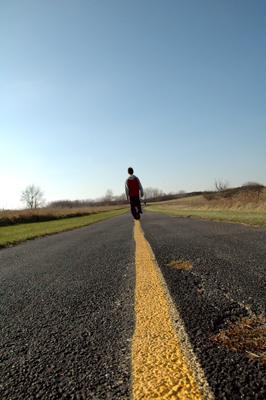All Nonfiction
- Bullying
- Books
- Academic
- Author Interviews
- Celebrity interviews
- College Articles
- College Essays
- Educator of the Year
- Heroes
- Interviews
- Memoir
- Personal Experience
- Sports
- Travel & Culture
All Opinions
- Bullying
- Current Events / Politics
- Discrimination
- Drugs / Alcohol / Smoking
- Entertainment / Celebrities
- Environment
- Love / Relationships
- Movies / Music / TV
- Pop Culture / Trends
- School / College
- Social Issues / Civics
- Spirituality / Religion
- Sports / Hobbies
All Hot Topics
- Bullying
- Community Service
- Environment
- Health
- Letters to the Editor
- Pride & Prejudice
- What Matters
- Back
Summer Guide
- Program Links
- Program Reviews
- Back
College Guide
- College Links
- College Reviews
- College Essays
- College Articles
- Back
Drunk Driving: A Preventable Problem
In 2013, 32% of all traffic deaths were because of drunk driving. Drunk driving is a serious issue and is 100% preventable. When people drive drunk they are not only endangering their own life, but also endangering people on the road who are just driving home, or taking a trip to the store. A DUI is when someone is convicted of driving under the influence, and has to pay the penalties that come along with a DUI. When people are arrested for DUI, there are very small fines and consequences that affect that person’s life. Conviction of DUI is a severe matter, and should have consequences that match the action.
So, as soon as a drunk driver chooses to start driving, there is a chance that no one on the same road is safe. Throughout the United States in 2004, there was an alcohol related traffic fatality every 30 minutes and an alcohol related injury every 7 minutes. The conviction for a first offence DUI is minimum 1 year driving loss, possible imprisonment for up to one year, and a maximum fine of $2,500. These penalties will only affect a person who was driving drunk for a max of one year. The penalties for a person convicted of drunk driving do not really affect that person, there can be a substitution of jail time for community service, and a license suspension only lasts a year and after that, the license privileges are fully regained. After one year is up, there are no checkpoints or extra measures taken to make sure that person never drives drunk again. Drunk driving is considered one of the most horrible offences to commit, so why aren’t the consequences as serious? Even if there is a second DUI conviction there is the same fine, same possibility of imprisonment for up to one year, and only a five day imprisonment that can be changed for two hundred and forty hours of community service that has a maximum of five year license suspension. After three plus occasions of being caught for drunk driving there are still very little penalties for the action.
Furthermore, drunk driving can be counted as a class 4 felony after four plus times only if there is permanent damage to someone or a fatal injury. In places outside of the U.S, there have been sobriety checkpoints put in place and the percent of drunk drivers has dramatically been reduced. In places like Australia, the blood alcohol limit is .05, compared to the Illinois level of .08. With a lower blood alcohol level set in place, it makes people double check and make sure they are okay to drive because of the harsh penalties put in place for drinking and driving in Australia. Although the people in the United States find sobriety checkpoints on the road to be a violation of the fourth amendment, they are proven to help reduce drunken driving rates, and have less people driving drunk on the roads. The rate of drinking and driving fatalities in the United States is so high, that sobriety checkpoints along expressways would drastically decrease the percentage of drinking and driving convictions and fatalities. Serious actions need to be taken towards drinking and driving, because it is such a huge problem in the United States.
Moving on, underage drinking and driving is also one of the biggest problems that come along with drinking and driving. More than 3 people under the age of 21 die each day in alcohol-impaired driving crashes, and underage drinking and driving fatalities make up a big portion of the overall drunk driving fatalities. Drunk driving is a huge issue, yet is is completely avoidable. Sobriety checkpoints should be put on expressways and busy streets to ensure drunk drivers are stopped before there is any damage to others, and consequences should match the offense. For drunk driving convictions there should be required jail time, and a permanent license revocation to ensure that it is not a repeated offence and that the drunk driving rate declines to nothing and the problem is completely solved.
In conclusion, drunk driving is something that affects everyone who drives, and to make this issue stop, sobriety checkpoints and worse penalties are needed. People also need to recognize the seriousness of their actions, and for people to realize what they have done, the consequences must match their actions. Although the drunk driving rates have slowly been declining it is still a huge issue that needs to be handled and controlled. People need to put in place the correct laws and regulations to stop drinking and driving altogether.

Similar Articles
JOIN THE DISCUSSION
This article has 0 comments.
